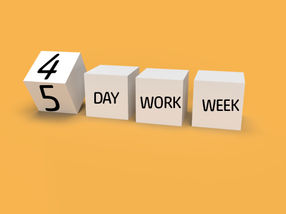Do you also suffer from Zoom fatigue?
It takes a different kind of concentration
Advertisement
After a long day of online meetings and classes, many people feel tired and exhausted. And with good reason because, when online, we are deprived of the many impressions and signals that help us to better understand what is being said.

Photo by Adrian Swancar on Unsplash
In record time, the University of Copenhagen converted physical teaching into online teaching. Instead of going into the classroom or the meeting room, we went into Zoom, Teams and Skype.
The sudden digital leap has required some adaptation. We had to learn everything from how the technique works to when it makes sense to use breakout rooms or polls to not taking lunch while in a meeting. Check, check, check.
While we are following a steep learning curve, reports are in of a phenomenon or a state of mind sneaking up on us. We get tired – really tired – at the end of the day when classes, group sessions and meetings are done with. Tired in a way we did not know before 11 March, even after a long working day.
Is your head also spinning?
More and more people say that after a day of focusing on the small, pixelated faces on the screen, they feel their head spinning, they have difficulties collecting their thoughts and they show signs of illness like... well, corona or the flu.
With Teams, Zoom, Google Hangout and Skype becoming an integral part of life in the last few months, a new concept has emerged: Zoom fatigue, as international media have labelled it.
But what is it that makes our heads spin at the end of a work day?
Body language and verbal language must be in sync
Søren Kyllingsbæk is a professor and head of the Department of Psychology. He says that in conversations, which meetings and teaching often are, we receive multiple impressions that we unconsciously keep processing:
“There are many underlying processes when we cognitively want to understand what is being said in a conversation. Things like our gestures, facial expressions, posture and everything else we do when talking to each other, and which we constantly perceive and decode, consciously or subconsciously, Here, timing is crucial because everything happens in milliseconds,” Søren Kyllingsbæk says and continues:
Søren Kyllingsbæk
“If you link what we’re saying with all those processes, then you can see that we begin to be in step, so to speak. Our body language and verbal language enhance and support each other, and that enables us to cognitively better understand each other.”
Problems arise when we don't sit across from each other physically and we only see each other on a two-dimensional screen
“We decode a lot by eye contact, but that’s difficult because we’re looking on the screen and not directly into the camera. At the same time, the internet connection is often delayed. Together, these things tap into our ability to stay attentive because it’s harder for us to decode the non-verbal and unconscious signals, which we otherwise know how to do. And that causes fatigue,” Søren Kyllingsbæk says.
It takes a different kind of concentration
Rasmus Dam Bonnesen is an online and blended learning consultant at the Teaching Centre Humanities (TEACH). He recognises the phenomenon. Not because he is familiar with the research in the field, but because he is currently experiencing it himself.
Rasmus Dam Bonnesen
“I had two full-day meetings with representatives from other European universities and, afterwards, I felt so exhausted that I actually talked to a colleague about it,” Rasmus Dam Bonnesen says and continues:
“Right now, we're all on a steep learning curve. We have become more or less confident with the technical side, but we have to accept that it requires a different kind of concentration and presence when we’re online with others. We can’ just ask the person sitting next to us to repeat what was said if we lose concentration for a moment. That taps into our resources - both in teaching and in meetings - and we feel exhausted.
Different output in the future
According to Rasmus Dam Bonnesen, it is therefore important to engage and involve the participants in a meeting or when teaching. For example, by combining online and offline tools:
“I've seen several lecturers standing by a flipboard, so you can follow along in speaker view. This creates a different and better dynamic.
Asked if, on the other side of the corona epidemic, we are going to use our resources better and more efficiently because we have become familiar with our online presence, Rasmus Dam Bonnesen says:
“We’re definitely going to use our resources differently. I don't believe that we will perform more, but I'm pretty sure that we will be meeting and teaching differently than we do now. I think that flipped learning, where the content you normally go through in class has been recorded on video, so you don't have to spend time on that in the classroom, as well as podcasts and many of the other tools that have been in the pipeline for a long time are now going to take off.”



























































